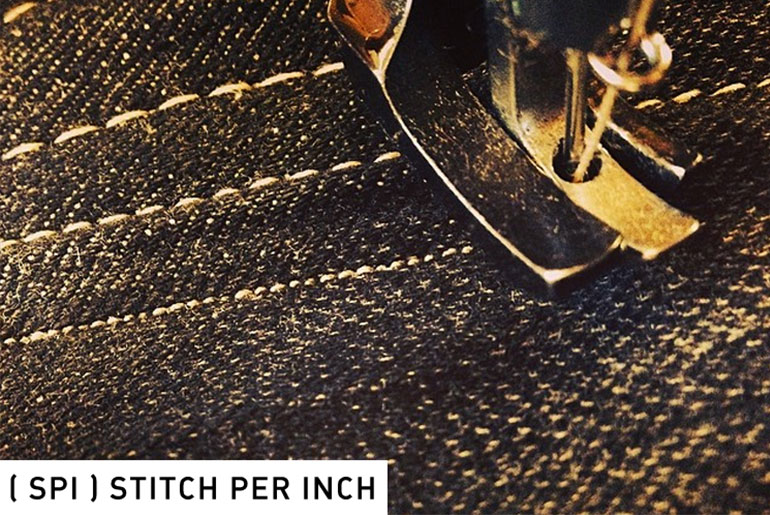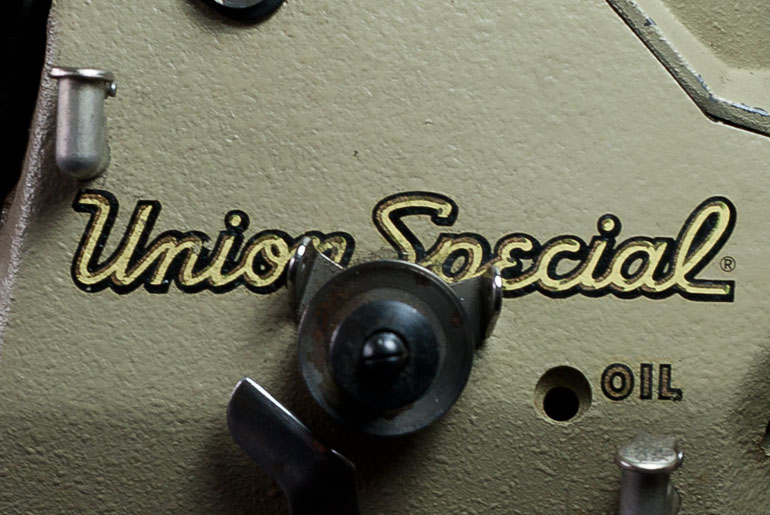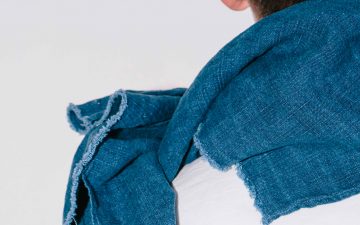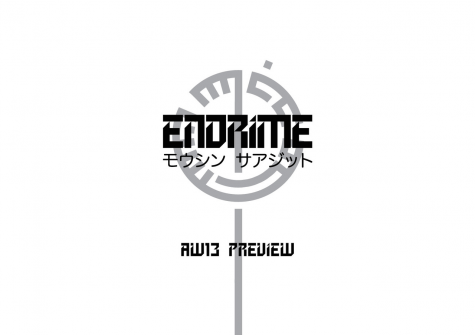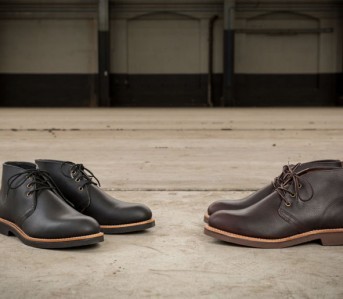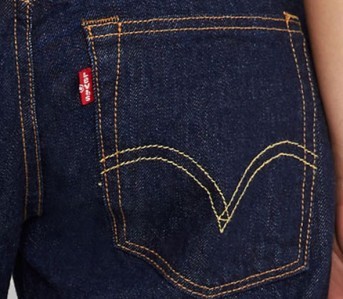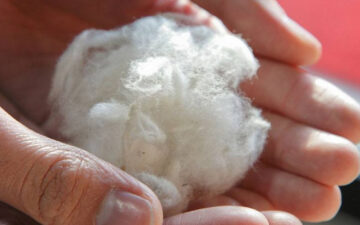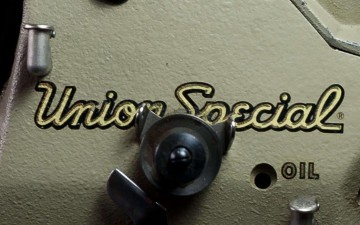The machine that often gets the bulk of the attention in the raw denim world is the Union Special 43200G chain stitch hemmer (see Self Edge’s above). We wanted to take a deeper look at some of the equally important vintage machines that are still hard at work making jeans today.
Mohsin Sajid, the creative director behind the UK’s Endrime denim brand and a confessed sewing machine enthusiast, was kind enough to guide us through the wonderful world of Singers, Reeces, and Union Specials. Read on for an up-close look through vintage machines you need to start your own denim operation.
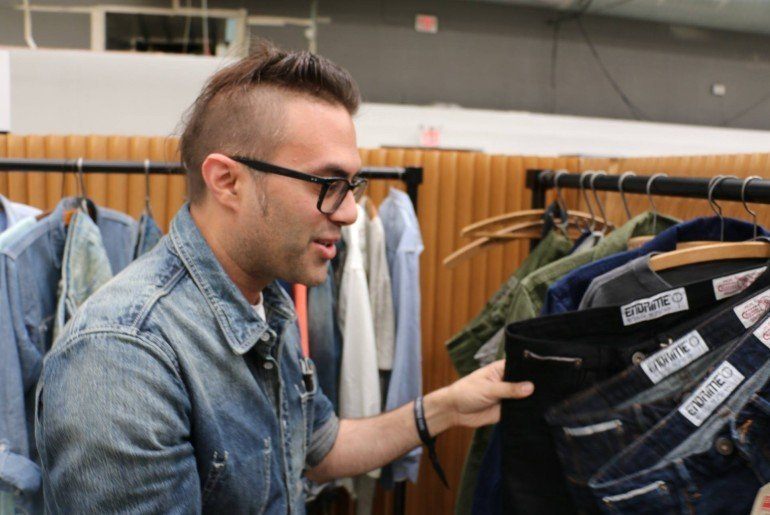
Most denim designers all end up the same–obsessed and in love with sewing machines. The love affair with machines started for me five years ago when I decided to start sewing again after a ten-year hiatus.
Most trained designers can sew, we are taught pattern cutting, draping, and tailoring. After ten years working as a designer for some of the world’s best denim companies, I decided when it came to my own brand, Endrime. I would buy the best machines I could (after doing some research), and take my time hunting them down slowly. We list the sewing machines used on pocket bags of every Endrime jean, something we were the first to do with 100% transparency.
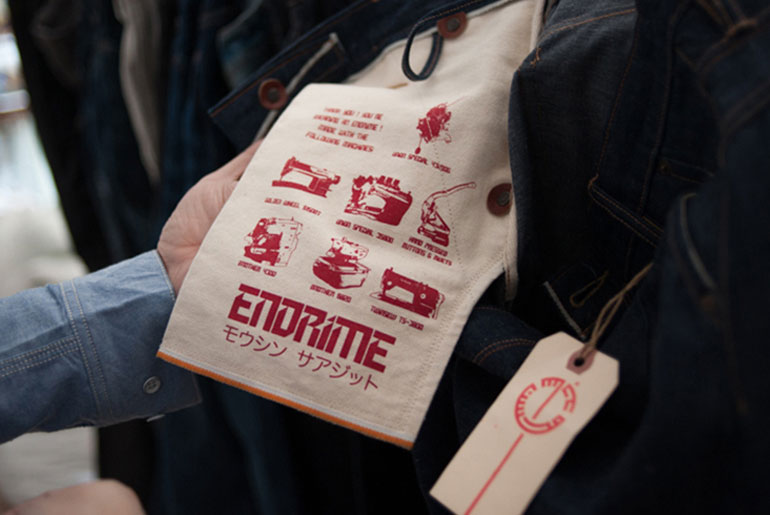
Most denim heads like me, tend to hunt down the older machines. This is mainly because they make beautiful stitches or imperfections when they sew. There is always a nice story with old machines, and they look way better than their modern counterparts. Yes, they are difficult to maintain and some parts no longer exist but generally, they are better as they are products of a time when everything was generally made better.
That said, if I had a studio full of modern machines I would most likely not get the same type of attention, so it certainly helps collecting older machines. It’s something that goes hand in hand with learning about vintage garments – you need to understand the machines that made them if you want your own garments to look as good.
Denim designers working on these old machines (Roy Slaper, Ohio’s Zace USA, Ben Viapiana from Bangkok, or our buddy Navid Dastanai to name a few) tend to become experts in fixing and repairing machines themselves. I’ve had to teach myself how each machine behaves and the parts that make it run so I know how to fix the problem when something goes wrong.
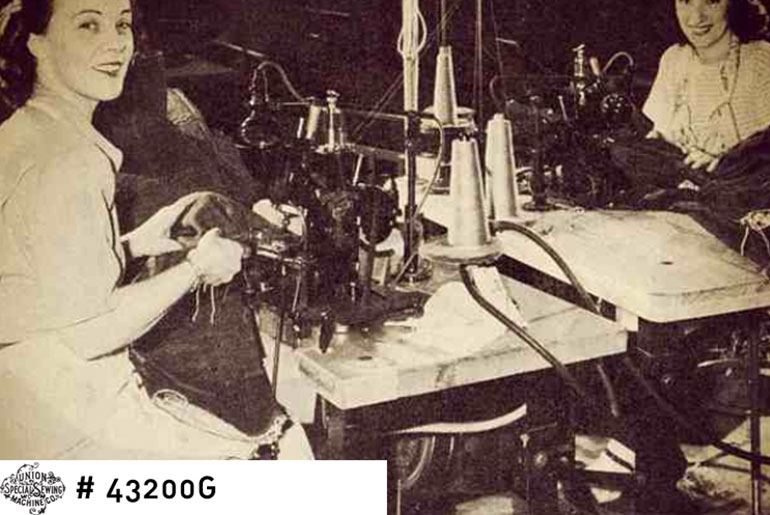
When you talk with any denim head, see any article, or read anything about vintage machines– most are only interested in the Union Special 43200G. The chain stitch hemming machine – but there are many more machines – which are just as important, especially if you want to make denim from the golden 50s era.
If you are thinking about opening a denim studio – then this list should get you on the correct path, especially if you’re thinking about making jeans the 1950s way. I’m sure my fellow denim connoisseurs will add / comment to this as there are for sure plenty I have missed!
Hemming Machine – UNION SPECIAL 43200G
Vintage chain stitch hemming machine from 1939 – this is the machine every denim head wants. On average, these sell on eBay for $3,000 – $5,000.
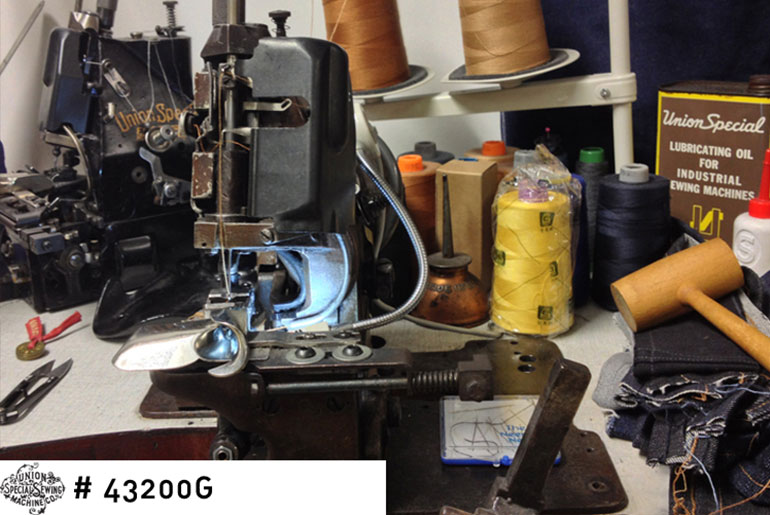
What makes this machine special is the roping effect, which is caused by a fault in the machine and its turner. There are three generations of the 43200G and they all have this fault. The first-generation versions were black, like most machines in 1939 early 1940s period.
Union Special stopped manufacturing these machines in 1989, making them an instant collector’s item. To many, a jean without a chain stitch hem is not a jean – and it has to be sewn with the right machine with the roping effect.
Since the resurgence of purest denim from the mid-1990s onwards, the hunt of the 43200G has been on the top of lists for every denim shop, and tailor shop. The Japanese market, however, was 5-10 years ahead and cleaned up before anyone else started caring.
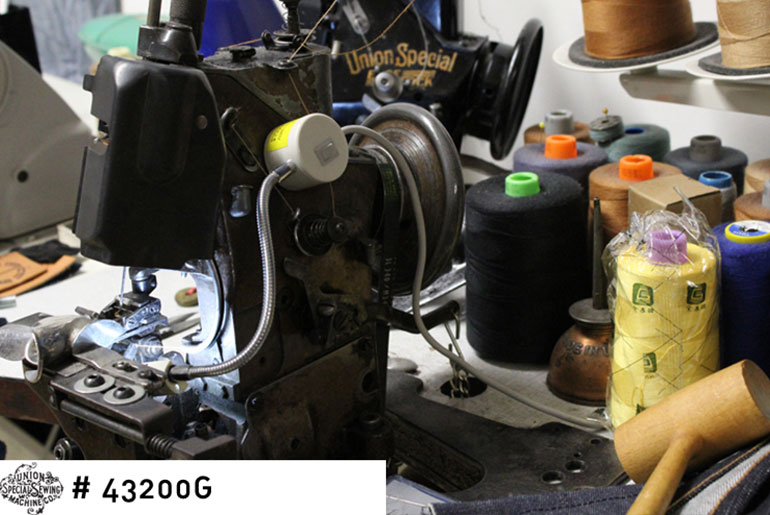
This is why is why there’s a lust for Union specials. For me, they were the standard from the past, plus they look amazing. Some of the purest brands from Japan–like Kapital, 45rpm, Big John, and Momotaro–still use the 43200G. At Endrime, we only use this machine to hem all our jeans and chinos.
Moving with consumer trends, many companies modernized their machines in the 1980’s so most of the 43200G’s ended up again in China, Japan, Pakistan etc. Since most denim was now open-end, the trend leaned towards fast, cheap, and lower-quality denim. Most chain stitched hems unraveled quickly when broken, so most garment manufacturers switched to lockstitch machines like the Union Special 63900 instead, and did not reorder chain stitched hemming machines.
- Fun Fact 1 – Most denim shops and designers use a cheaper Union Special 43200F (which was originally used for side seams) and add the folder on this machine to claim it’s a 43200G.
- Fun Fact 2 – Before the 43200G, there was another machine called Union Special 11500G – dating from well before 1921. These are super rare and I’ve only seen two working models: at Rising Sun and Samurai Jeans in Japan.
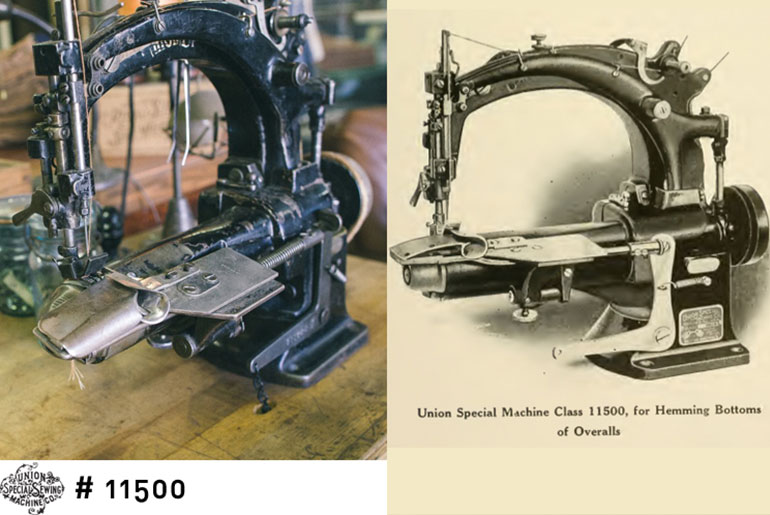
Darning Machine – SINGER 47W70
Vintage darning machine for repairing and “reweaving” denim. This is one of the holy grail machines for darning and repair and on average sells on eBay for $500 – $1000.
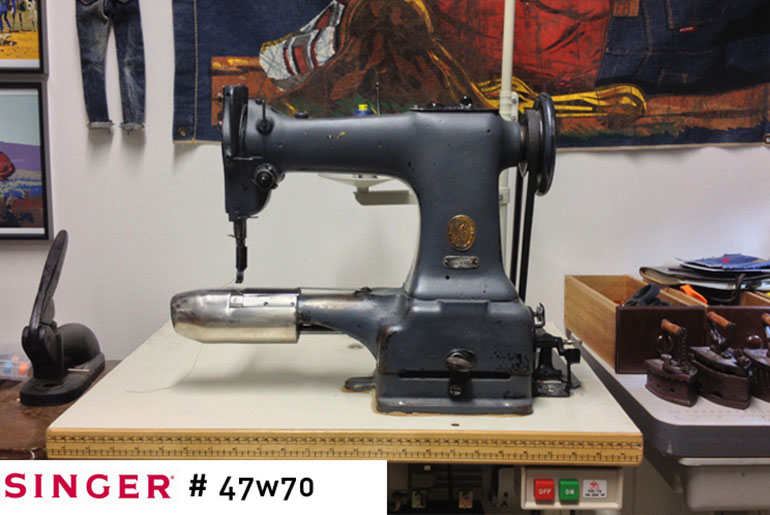
I have a second generation machine of this machine (as it’s not black), but Singer started making them in 1914. This machine has no feed dogs, so the user can control the length of each stitch, the speed with the foot pedal, and use hand motion for the direction.
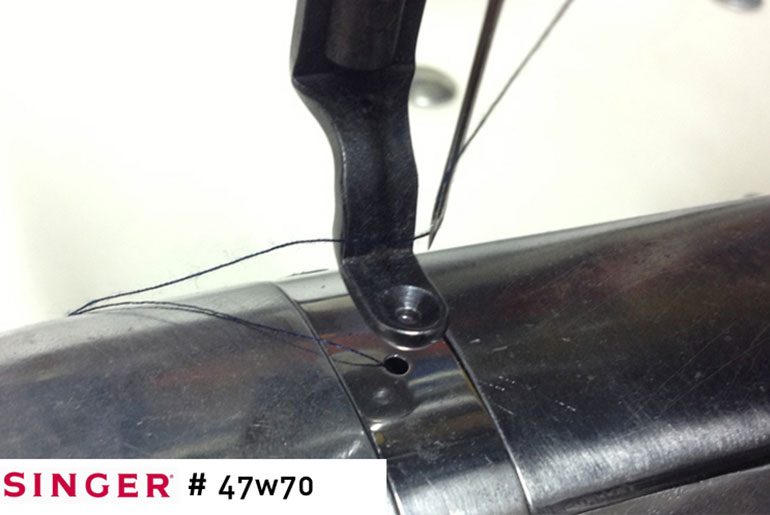
With a combination of thin thread colours and following the grain line and slub pattern of wear marks, skilled users can blend the repair so it does not even look as if it’s been mended. It’s an art form in its own right; you can even repair without patching your work from behind.
Andrew Chen was a big part of repopularizing this machine, but undoubtedly, one of the best at using it is Rain Delisle from Self Edge San Francisco’s Darn-it Repair Shop. Her skills are some of the best examples of darning on a 47W70 in the world.
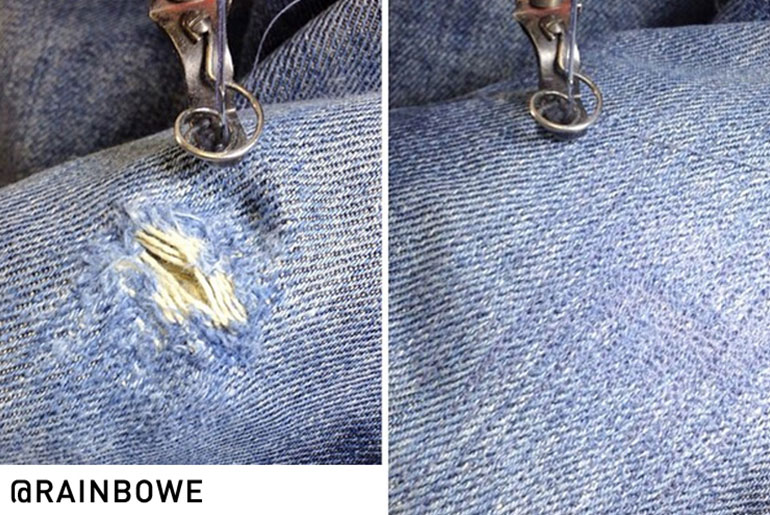
CHAIN STITCH EMBROIDERY/ CORNELY MACHINE – Singer 114W103
Made even more famous by Roy Slaper is the marvelous Singer 114W103 vintage single needle chain stitch / Cornely machine. On average, these sell on eBay for $1.000 – $1500.
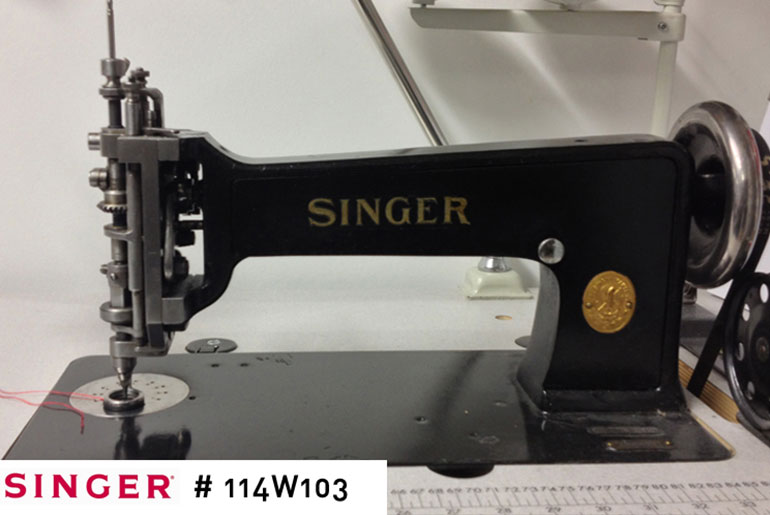
The Singer 114W103 is the first chainstitch machine Singer made, starting around 1911. It was first used in a treadle table and often called a “Cornely Type”, modeled after Cornely of France’s design that went into production in 1865.
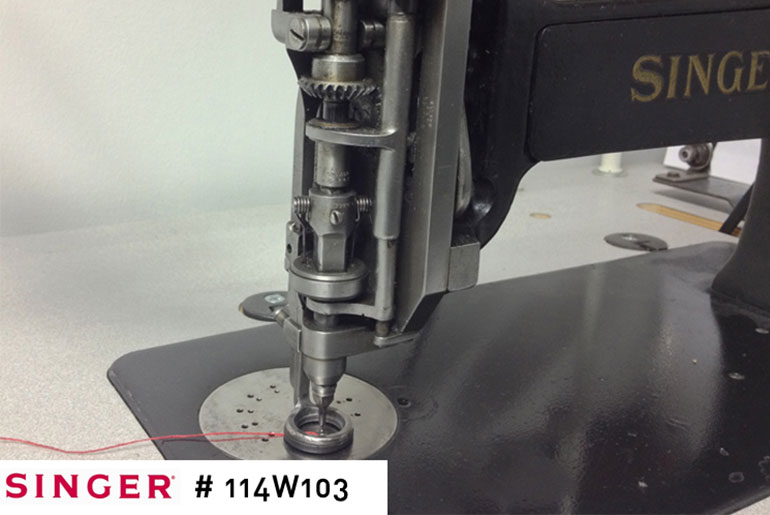
These single needle chain-stitch machines were used to stitch names onto garments, workshirts, handkerchiefs, etc. Now most embroideries are done on modern computerized machines, but there’s something quite amazing using the freehand crank below the machine, while directing your embroidery above and controlling the speed with your feet.
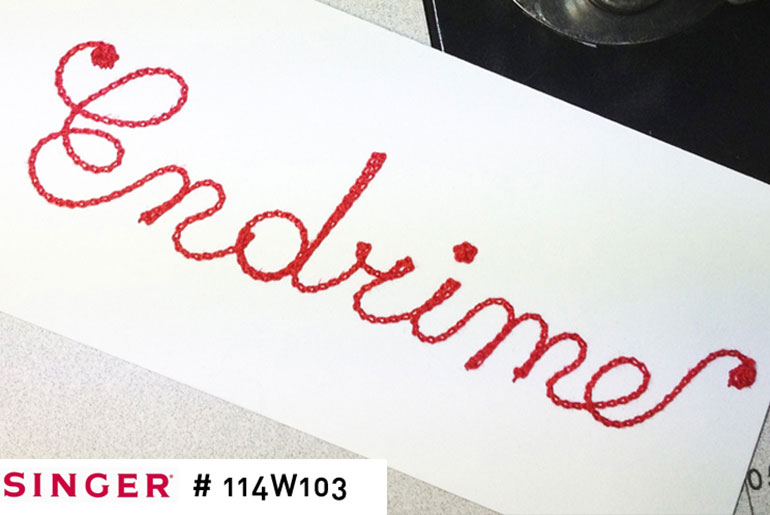
BUTTON HOLE MACHINE – Reece 101 KEYHOLE
This chainstitch button hole machine is one of the most respected, best-known models. These monsters have been the standard for keyhole chainstitch button holes for ages and recognised throughout the industry as probably the best keyhole machine ever made.
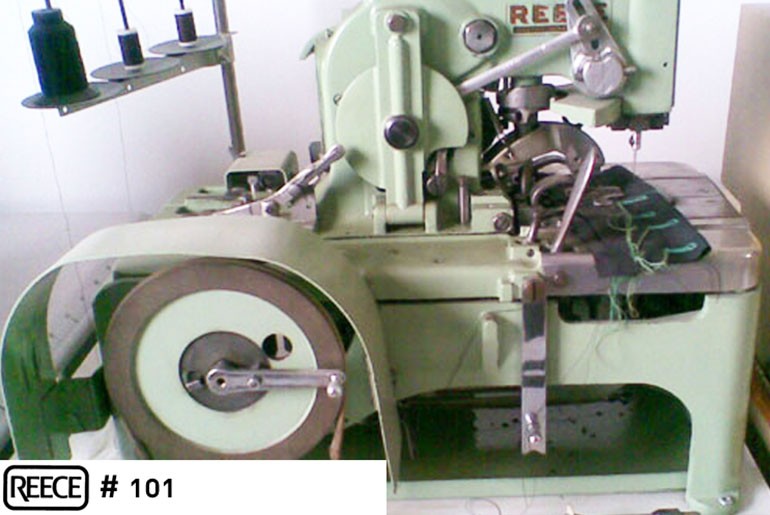
The Reece 101 is famous as it allows the work to remain stationary while the head travels around the buttonhole. This guarantees that the garment does not move during the sewing cycle. The only “Hand Hole” model in the world as Reece would say it.
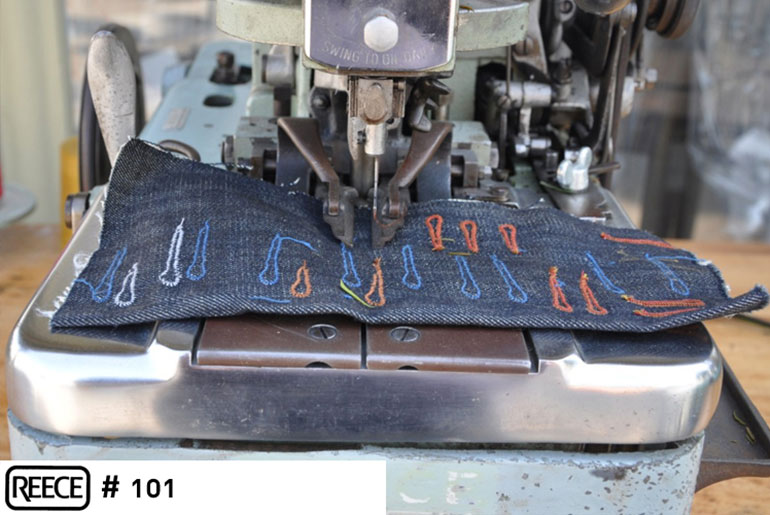
It’s also one of the first machines capable of sewing an imitation hand-stitch buttonhole with a top gimp attachment. The hand hole is, without a doubt one of the best buttonholes you will see anywhere and it gives the appearance of a hand sewn buttonhole.
Getting a hold of one is fairly easy. There are many on eBay plus many online sellers, mainly because so many of these bad boys have been made. Just like the Union Special 43200Gs, most of the Reece 101s found their way to China during the mid 80’s.
Of course spending upwards of £3,000 – £10,000 is a big commitment for anyone. Luckily, there are many sewing specialist companies reconditioning and rebuilding these monsters – specialist jobs whereby the machines are stripped down, reconditioned or rebuilt, repainted, reassembled & tested by experienced specialist Reece trained engineers – crazy!
Similar to the Reece 101, but even rarer, is the Singer 99W110. It predates the Reece, also produces a keyhole stitched buttonhole, and is one of the rarest vintage sewing machines.
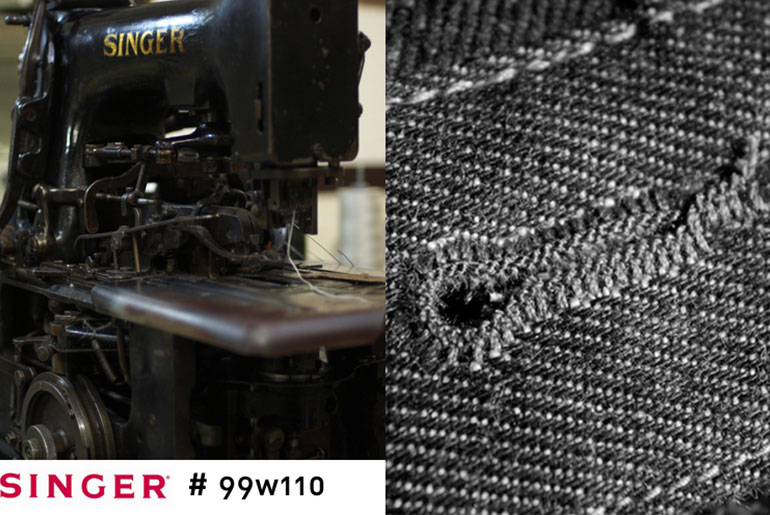
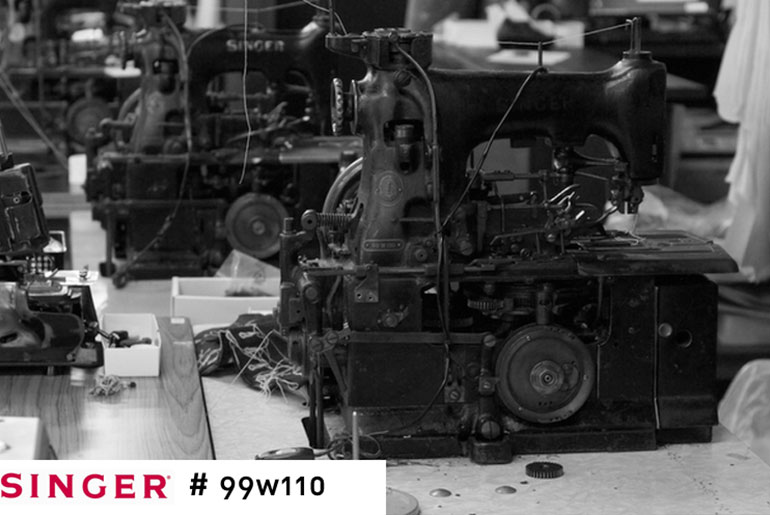
TWIN NEEDLE FLAT LOCK – UNION SPECIAL 11900
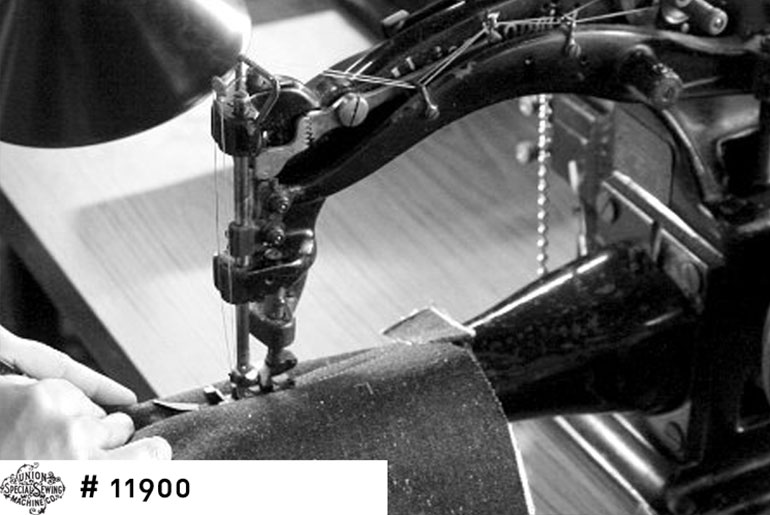
The Union Special 11900 is a twin needle machine that can be used for a range of jobs. The flat lock stitch could be used for belt loops, yokes, seams–practically anything. Plus it looks super cool!
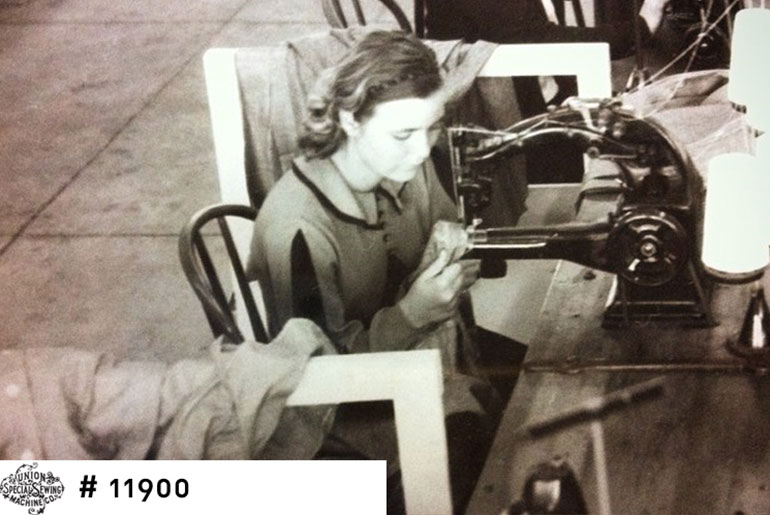
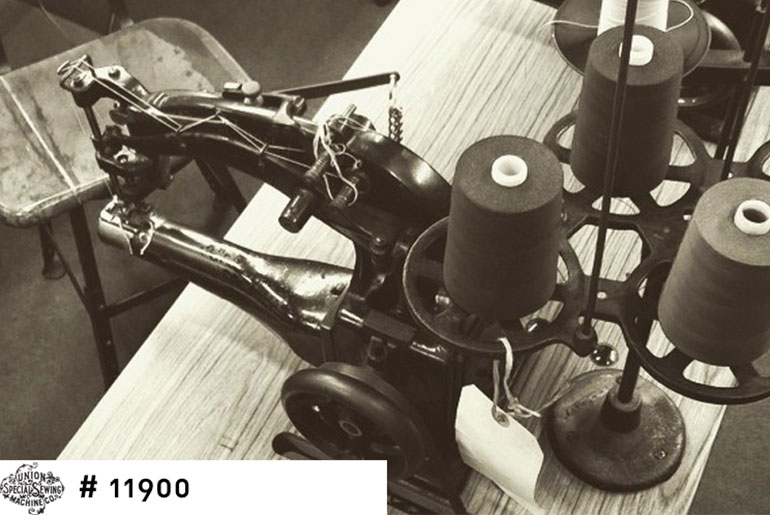
1/8″ TWIN NEEDLE MACHINE – SINGER 112-140
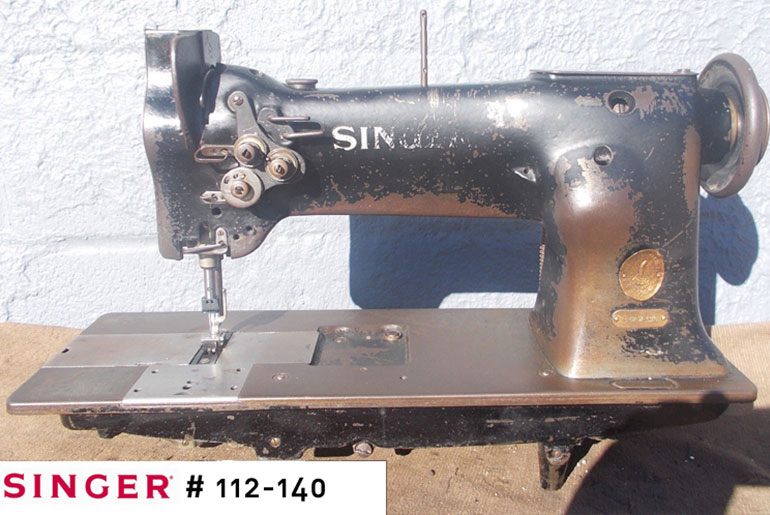
Twin needle machines are not that rare, 1/4” or 5/16” are quite common, although you hardly ever see a 1/8” twin or 3/16″ twin needle machine. This Singer is a rare one, which is a monster with a double bobbin holder and a 1/8” spacing between the needles. Superb.
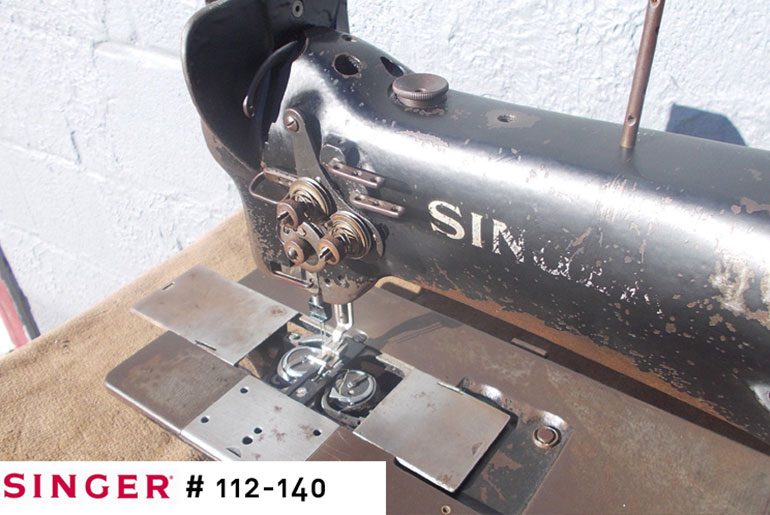
BAR TACK MACHINE – SINGER 69-8 SERIES

There are many types of bar tack machines, but none as sought after like the Singer 69-8, 28-stitch 1/8″ – 1/4″ bar tack. These machines are very desirable, especially as the stitch it creates often has slight imperfections. Modern bar tack machines are just too refined.
BELT LOOP MACHINE – UNION SPECIAL 7400
There are many ways to make belt loops. As a result of how many different types of machines can be used in combination with folders / turner, the options are endless. However, one of the more popular ways is to use a twin needle machine, particularly the Union Special 7400.
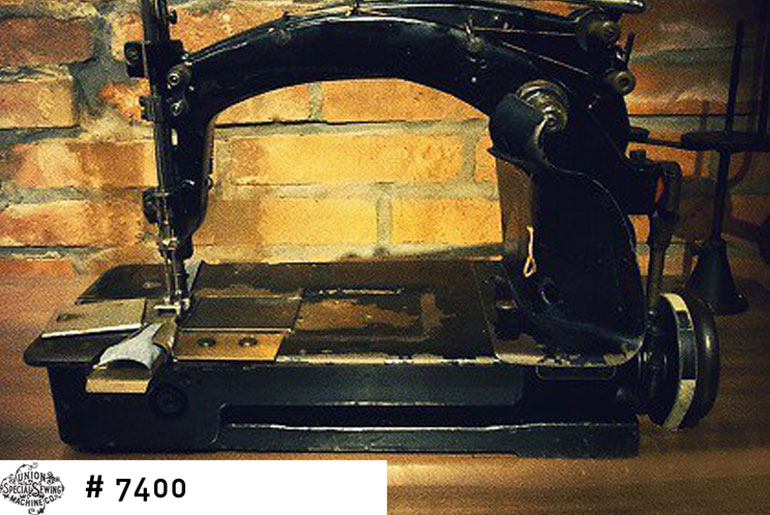
BELT LOOP MACHINE – UNION SPECIAL 6900
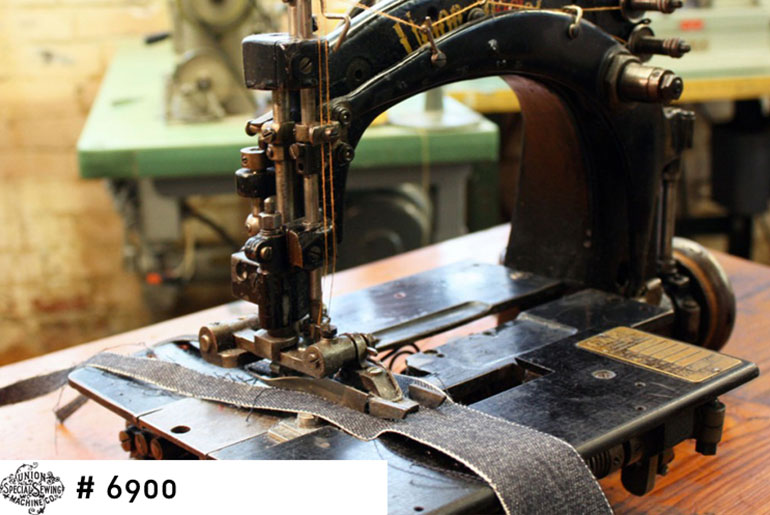
But even rarer is the Union Special 6900. This machine cuts and turns the fabric and I’ve only seen one person have this machine – Roy Slaper. The distance between needles is 3/16″.
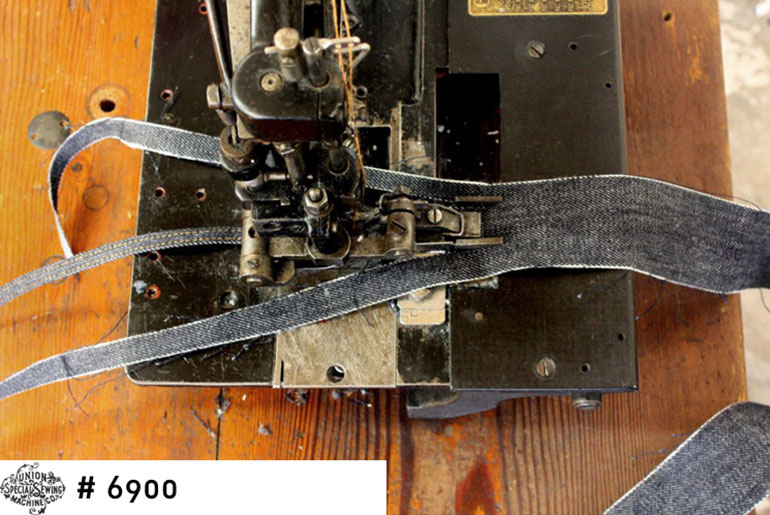
Overlockers
At Endrime, we don’t use overlockers in any of our denim or woven production, but there are some very important machines which might be worth picking up if you come across them.
The Union Special 15400 is one of the earliest examples of overlocker / serger machine. It’s a beauty.
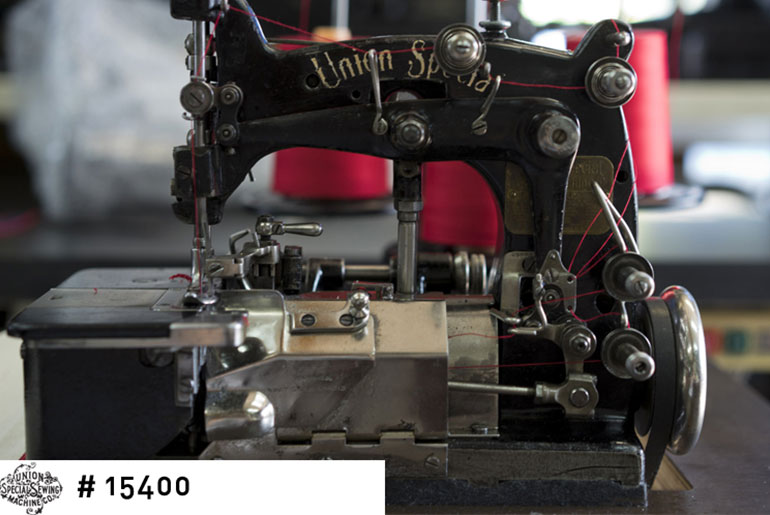
Coming up a close second is the Union Special 39200F Over Locker.
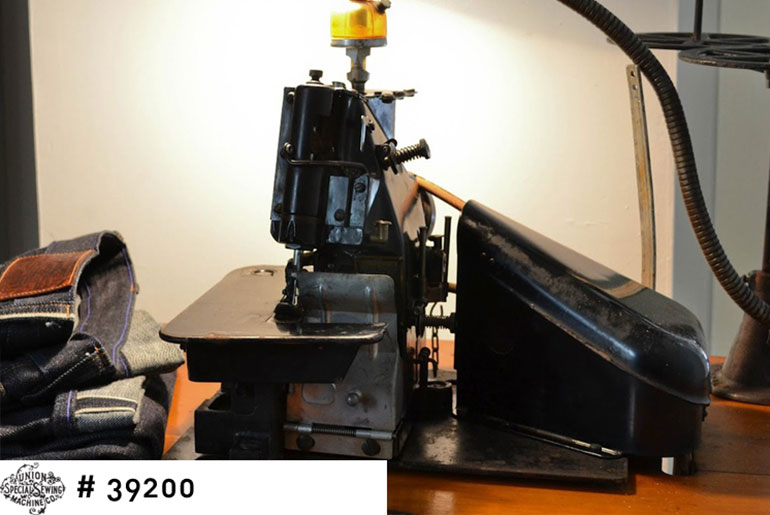
To the untrained eye this machine is often confused with the 43200G. But it’s a great machine, especially if you find it complete like above.
Waistband Machines
When the golden age of denim was in full swing, waistband machines ran the show and come in many different makes and models. Most, if not all, are chain stitch – often with 1, 2, 4, 9 needles – so you can chop and change if you want twin needle on the bottom of waistband, or a new combination of your choosing.
First on the block would be the Union Special 51700.
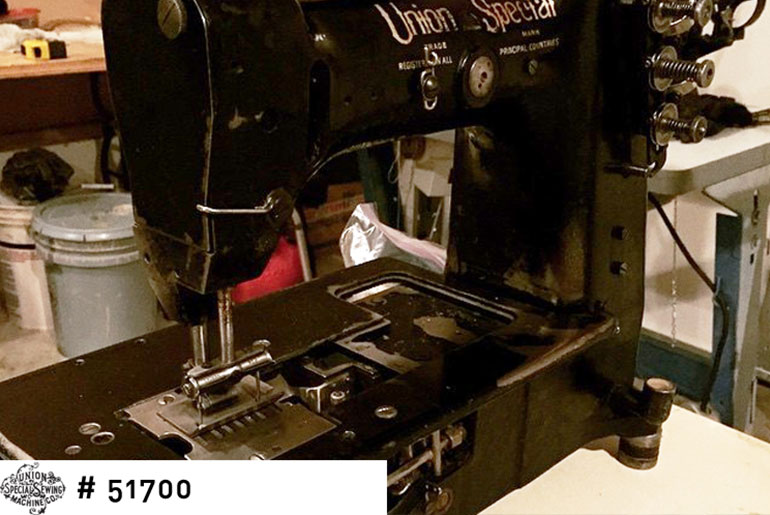
This is one of the oldest chain stitch waistband machines – many generations of the famous model are in the market place – but this black version is one of the hardest to find.
Next would be the more common: Union Special 51800,
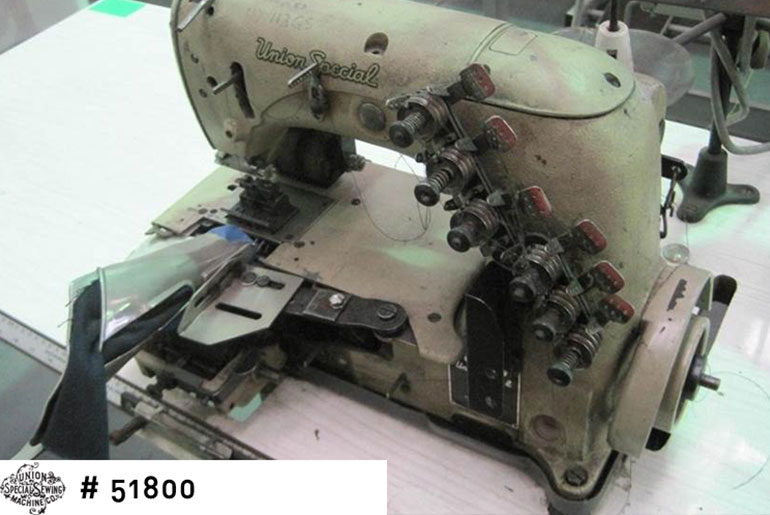
This is the version you mostly see in many factories. There’s no mistake, it’s stunning if it’s used correctly – like below.
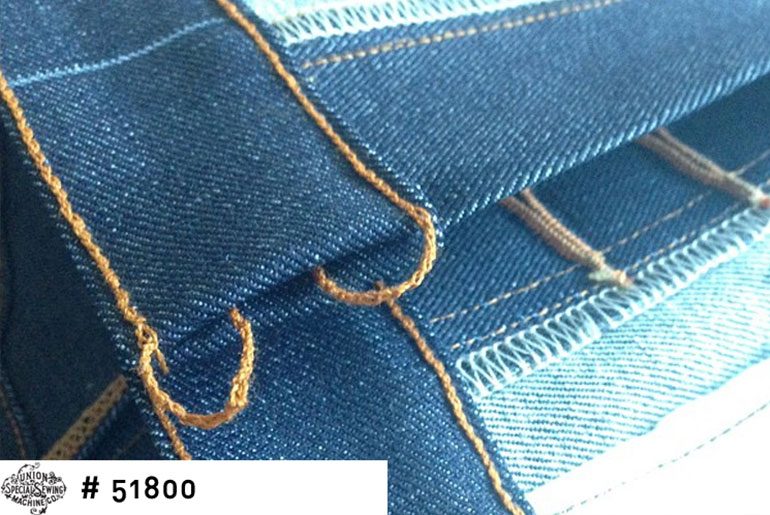
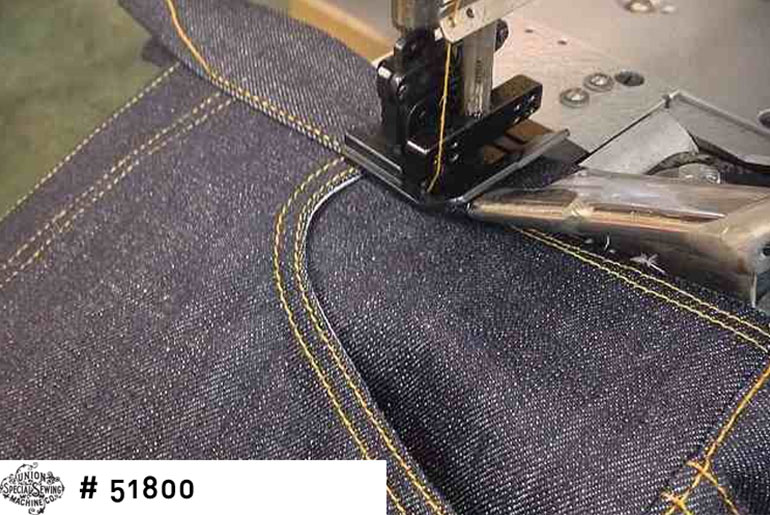
A close second to the Union Special 51800 would be the Singer 302W406.
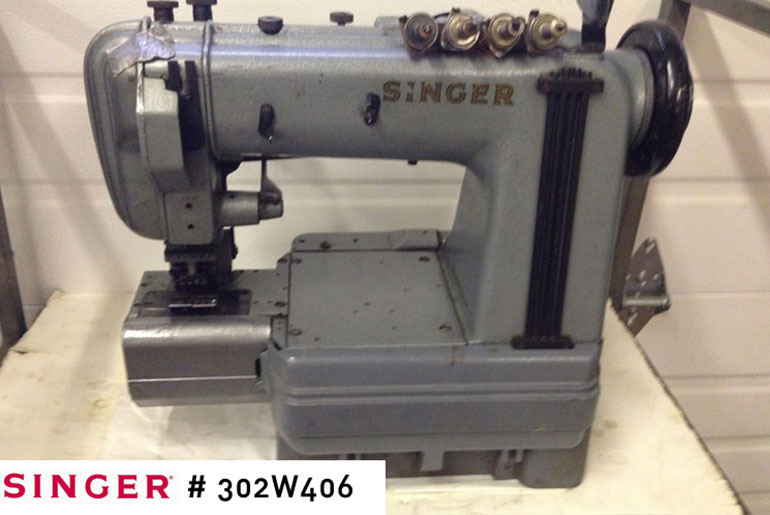
Felling Machines
The last set of machines in any complete set up would have to be felling machines.
It’s important to note that before the invention of the felling machine, most tailors would fell with a single needle machine. Examples can still be found within Endrime and other brands, such as Warehouse, Heller’s Café and even modern 3×1. It’s best to start with the rarest model first.
UNION SPECIAL 35700 – FELLING MACHINE 3/16s TWIN NEEDLE
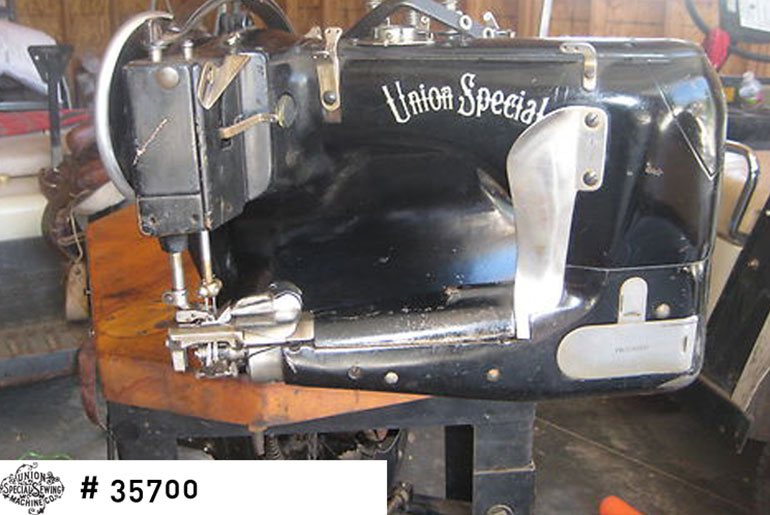
The 35700 is important, as you hardly never see 3/16” twin stitches any more – let alone a felling machine!
The modern day version, which you can find everywhere with no trouble would be the Union Special 35800.
UNION SPECIAL 35800 – FELLING MACHINE 5/16s TWIN NEEDLE
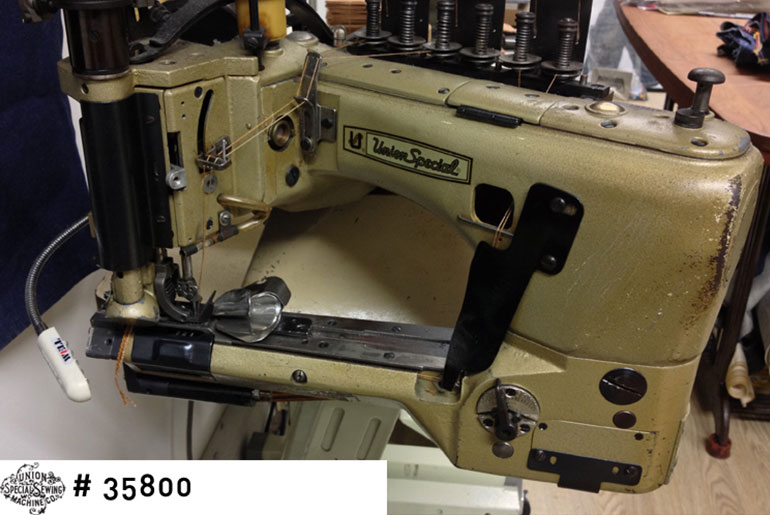
Final Thoughts
I have not listed the basic lockstitch machine as I believe you should buy a modern one like the Juki DDL-5600NL. Without a doubt, these can handle heavier denim, upwards of 30oz.
Also, on most machines you can also adjust the stitch per inch so its smaller. Most vintage brands 1920’s used upwards to 12-16 SPI, so keep that in mind if you’re going for as much authenticity as possible.
